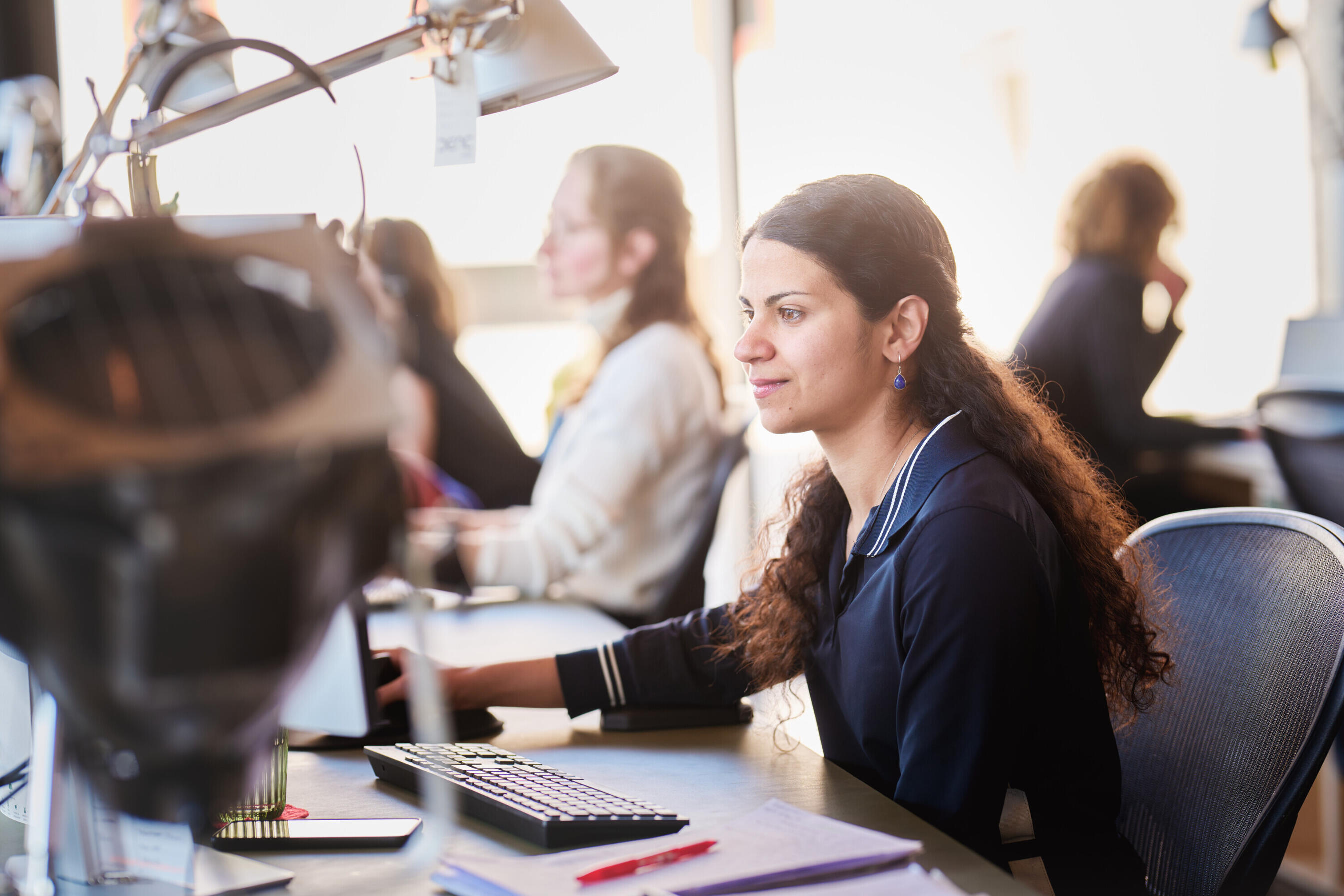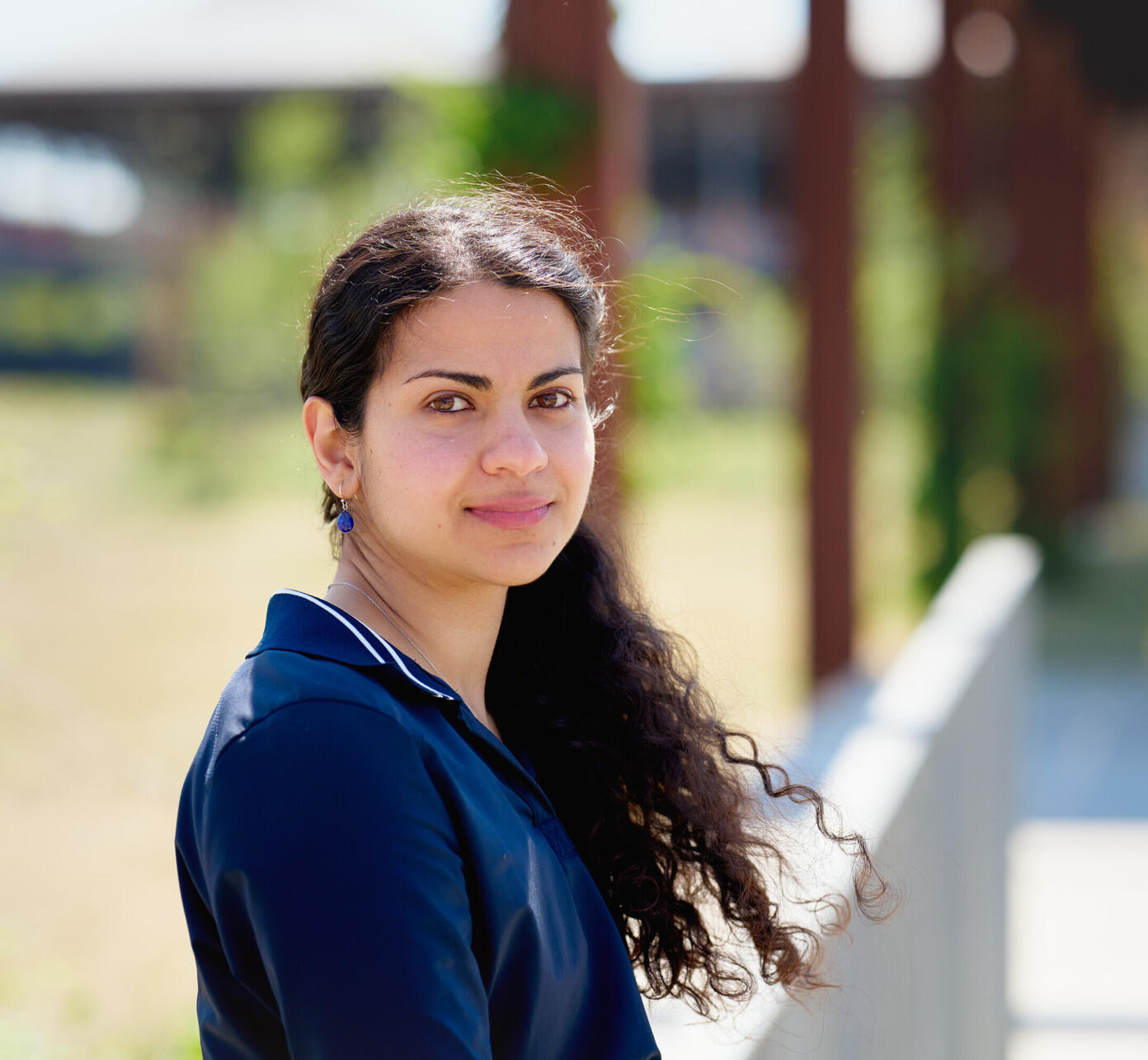This is the English version. Read the Dutch version of the article here.
For architects coming from abroad, building a professional life in Belgium offers unique opportunities — and some significant challenges. In this personal account, Iranian-born architect Reyhaneh Mesbahi shares her inspiring journey: from pursuing a master’s degree at KU Leuven to navigating Belgium’s complex administrative landscape, developing a rich intercultural design perspective, and finding her place within the local architectural community. Her story is a source of encouragement for fellow international professionals and a reminder of the value of diversity in design practice.
“In 2019, I moved from Iran to Belgium with a clear goal in mind: to earn a master’s degree in architecture at a university with a strong reputation. For me, KU Leuven was the best choice, both academically and financially. I had just completed my bachelor’s degree in architectural engineering in Iran, but I wanted to become independent, broaden my horizons, and develop myself further.
What immediately stood out to me was that here, architecture is divided into two tracks. In Iran, there is only the engineering side. The fact that I could choose an artistic program here felt enriching. Combining both perspectives makes my approach more complete.”
Mental Space
“Finding a job was anything but straightforward from an administrative standpoint. During my studies, I had to renew my residence card every year. Back then, there was no ‘orientation year visa’ — which exists now. Since applying for a professional card can take up to four months, I effectively had only three months to find a job after graduation. It was stressful.
Luckily, I found an internship after just two weeks, where I eventually worked for over two years as a freelancer. For that, I needed a professional card, which was valid for only two years and had to be renewed regularly. Later, when I switched to an employee contract at DENC-STUDIO — a positive step — the entire administrative process had to start again.
We’re talking about months-long procedures, mountains of paperwork, and strict conditions, some of which are barely achievable in the architecture sector — for example, a salary threshold higher than the norm in our field. These are concerns that my Belgian colleagues usually don’t have to deal with, but for me, they take up a lot of mental space. I’m fortunate to have so much support from my colleagues.”
Job Search Challenges
“The application process also brought its own challenges. I applied for six jobs, five of which went smoothly — entirely in Dutch. I look back on that positively. But one comment stuck with me: ‘We don’t speak Persian here.’ My Dutch was deemed good, but I was immediately asked if I spoke French.
Of course, I don’t speak Persian at work — I know that! And of course I want to learn French, but I wasn’t there yet at the time. Derogatory remarks like that aren’t helpful. Language and constructive feedback are important — you’ll never hear me deny that. That’s why I started Dutch lessons in my third semester. It wasn’t easy, but it was necessary. The better my Dutch, the more confident I feel.
Still, that doubt sometimes lingers. I earned my degree here. I know my skills are strong. Yet I occasionally feel insecure.”

Architecte Reyhaneh Mesbahi © Bieke Bruggeman
Flexible and Resilient
“I believe my background brings a different perspective. My engineering education in Iran, combined with my artistic training in Belgium, helps me approach projects from multiple angles. But it goes beyond that. My culture also plays a role: I carry a sensitivity shaped by Iranian poetry. This influences how I perceive form and beauty.
Additionally, having built a new life independently in a different country has made me flexible and resilient. Multitasking has become second nature. I bring that versatility into my work.”
Learning from Each Other
“In projects, I strongly believe in the value of diversity. Just like in nature — where biodiversity leads to stronger ecosystems — I believe that different perspectives enhance a design. Not only culturally, but professionally as well. Here at the office, I see engineers and interior architects working together, and that collaboration is truly valuable.
At DENC-STUDIO, I felt welcome right away. My desk was ready with a card and a pen. Those small gestures mean a lot. There is clear structure here, but I feel equal to my colleagues and supervisors. That’s different from Iran, where there tends to be a greater distance to management.
There are big differences in regulations, too. Belgium is much stricter in terms of fire safety, for instance. But Iran has a lot to offer when it comes to passive and sustainable building. We can learn from each other.”
Words of Advice
“My advice to other foreign architects? Keep going. It’s harder, but absolutely worth it. Trust yourself, even if your language skills aren’t perfect yet.
And to colleagues and employers: be mindful of the administrative burdens foreign professionals carry. Sometimes, just asking how someone is really doing can mean a lot. During the protests in Iran in 2022 and 2023, I kept working, but I cried at night watching the news. A short chat during a lunchtime walk with a colleague can make such a difference.
And show trust. After a month, my manager said: ‘Your Dutch is good — you can answer the phone.’ That gesture worked wonders. It gave me confidence: I can do this.”

Katrien Depoorter
Projectmanager pers en communicatie
Netwerk Architecten Vlaanderen

